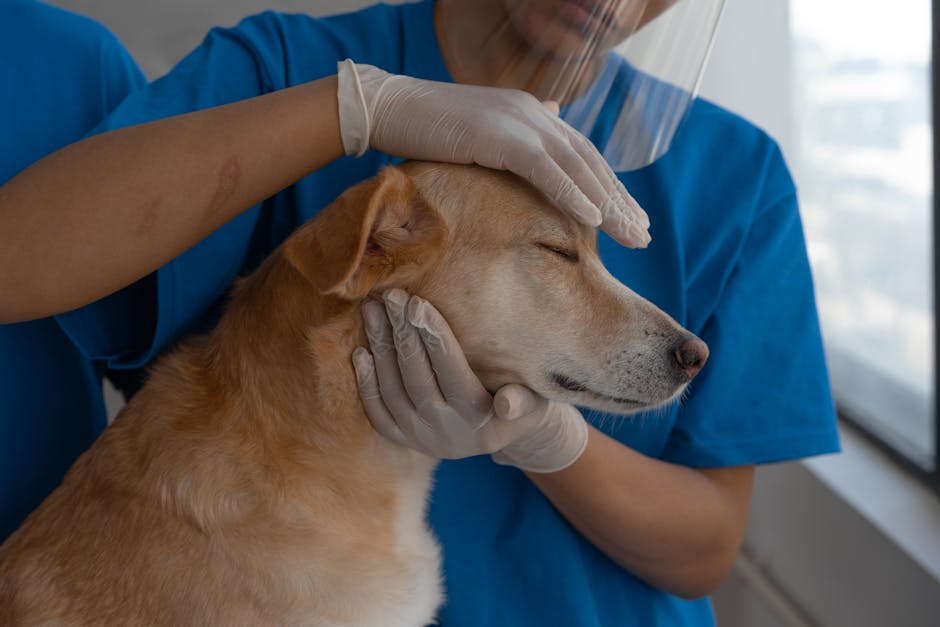Maintaining your pet’s health and well-being hinges on consistent veterinary care. Regular checkups are pivotal, not just for identifying potential issues early, but also for fostering a strong, trusting relationship between you and your veterinarian. This article delves into a comprehensive guide on when and how often you should schedule those crucial appointments.
Puppy and Kitten Development: Critical First Steps
A crucial period for any young animal is the initial months following birth. Puppies and kittens require frequent veterinary visits for several reasons. Firstly, vaccines are essential during this phase to build their immune systems against contagious diseases. Secondly, these appointments provide an ideal opportunity to monitor growth and development. Vet visits will check for appropriate weight gain, skeletal maturation, and overall well-being. A veterinarian can identify developmental delays or issues early, allowing for timely intervention. This proactive approach can mean the difference between a healthy, happy pet and one facing future health challenges. Initial visits are typically scheduled monthly for the first six months, gradually decreasing to bi-annual or annual check-ups as the animal matures.
Young Adult Pets: Maintaining Health Habits
As your pet transitions from puppy or kittenhood to young adulthood (typically between six months and two years), their needs slightly shift. While vaccinations are often completed, regular checkups remain paramount for preventative health. These visits are vital for establishing a baseline for your pet’s health. Blood pressure and heart rate monitoring can detect potential issues before they become apparent. Maintaining a consistent schedule ensures early detection of any emerging health concerns like dental problems, potential ear infections, and minor skin conditions. Young adults also benefit from discussions on appropriate nutrition and exercise routines. Semi-annual visits are often suitable during this phase.
Adult Pets: Consistent Checkups for Prevention
Adult pets (typically between two and seven years of age) require a slightly adjusted schedule but remain critical for continued well-being. Regular examinations and preventive care are crucial to maintain optimal health. These visits allow for early detection of conditions like arthritis, diabetes, and certain types of cancers. Discuss any changes in behaviour, appetite, or energy levels. Diet plays a pivotal role at this stage, and discussing dietary adjustments may be necessary as pets age. A thorough dental examination and professional cleaning, if recommended, are also vital parts of the adult pet check-up. Annual visits are recommended for a majority of healthy adult pets.
Senior Pets: Prioritizing Care for Aging Companions
As pets age (typically seven years and beyond), their needs often change. Senior pets are more susceptible to a variety of age-related health concerns. More frequent checkups become essential to proactively address potential issues. Conditions like arthritis, cognitive dysfunction, and kidney disease are frequently seen in older pets. Regular checkups provide a platform for discussing potential dietary changes and appropriate exercise to manage these conditions. Senior pets require a more thorough investigation of underlying health concerns. Bi-annual or even quarterly visits may be necessary to keep a close watch on their well-being. Each senior pet’s specific situation should be determined with the veterinarian to ensure the most appropriate care plan.
Beyond the Routine: Identifying When Urgent Care is Needed
Beyond the prescribed checkups, it’s essential to understand when immediate veterinary attention is crucial. Sudden changes in behaviour or appearance are significant indicators. Any alterations in appetite, urination, defecation, or energy levels warrant a prompt visit. Sudden limping, difficulty breathing, vomiting, or bleeding also necessitate urgent veterinary care. In short, any signs of discomfort or distress should not be ignored. Prompt action can save your pet’s life and maintain their optimal health.
Factors Influencing Checkup Frequency
Several factors can influence the ideal frequency of veterinary checkups. Breed predispositions to certain health conditions are important considerations. Some breeds are more prone to hip dysplasia, while others may have a higher risk of eye problems. Lifestyle also plays a role. Pets with high levels of activity or exposure to potential hazards may necessitate more frequent checkups. Underlying health conditions, such as allergies or pre-existing conditions, also necessitate adjustment in the frequency of visits. Communicating these factors to your veterinarian is essential in determining the most appropriate schedule for your pet.
Building a Strong Veterinary Partnership
Developing a strong relationship with your veterinarian is a cornerstone of pet health. Open communication and honesty about your pet’s health are pivotal to the success of your vet visits. Share details about your pet’s lifestyle, dietary habits, and any observed changes in behavior or physical appearance. Regular checkups are not just about the physical examination; they are an opportunity to build a partnership that supports your pet’s overall well-being and addresses your concerns.
In conclusion, consistent veterinary care is a testament to your love and responsibility for your pet. By understanding the importance of routine checkups across different life stages, you can proactively address potential health issues and ensure your furry friend enjoys a long, healthy, and happy life.
